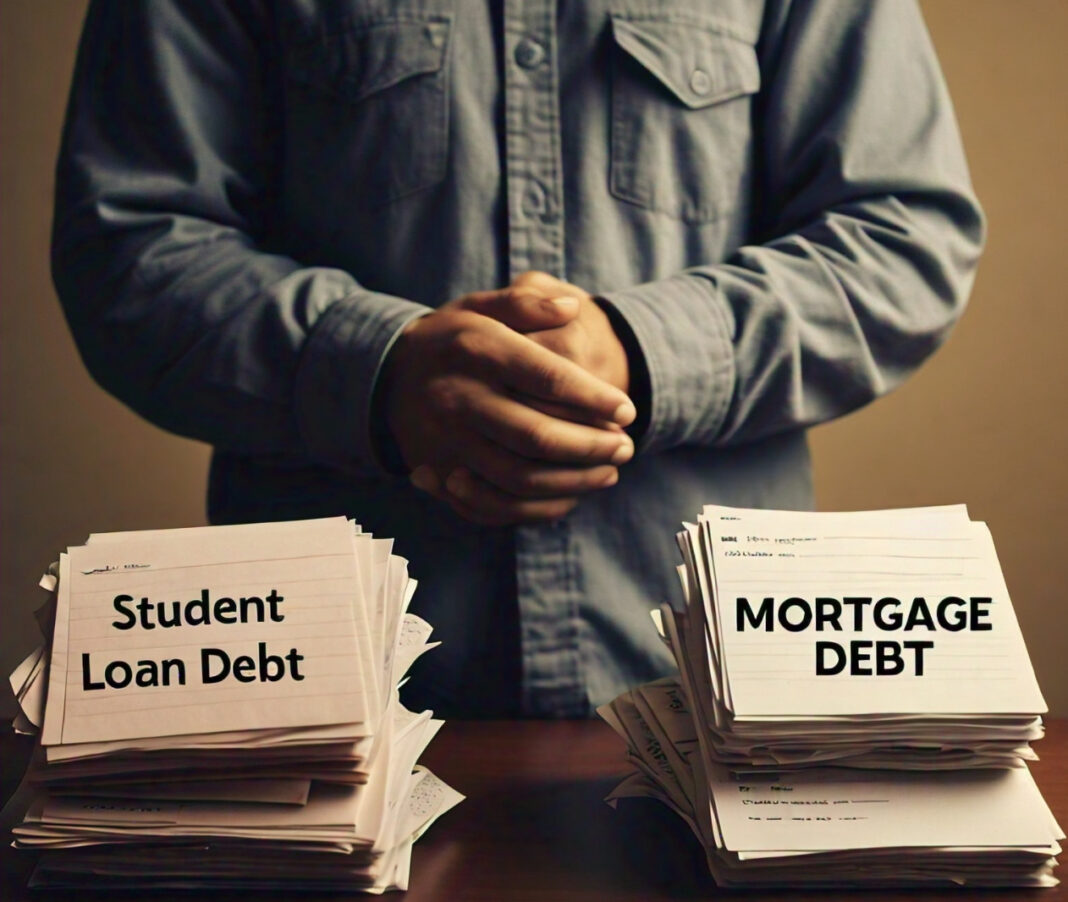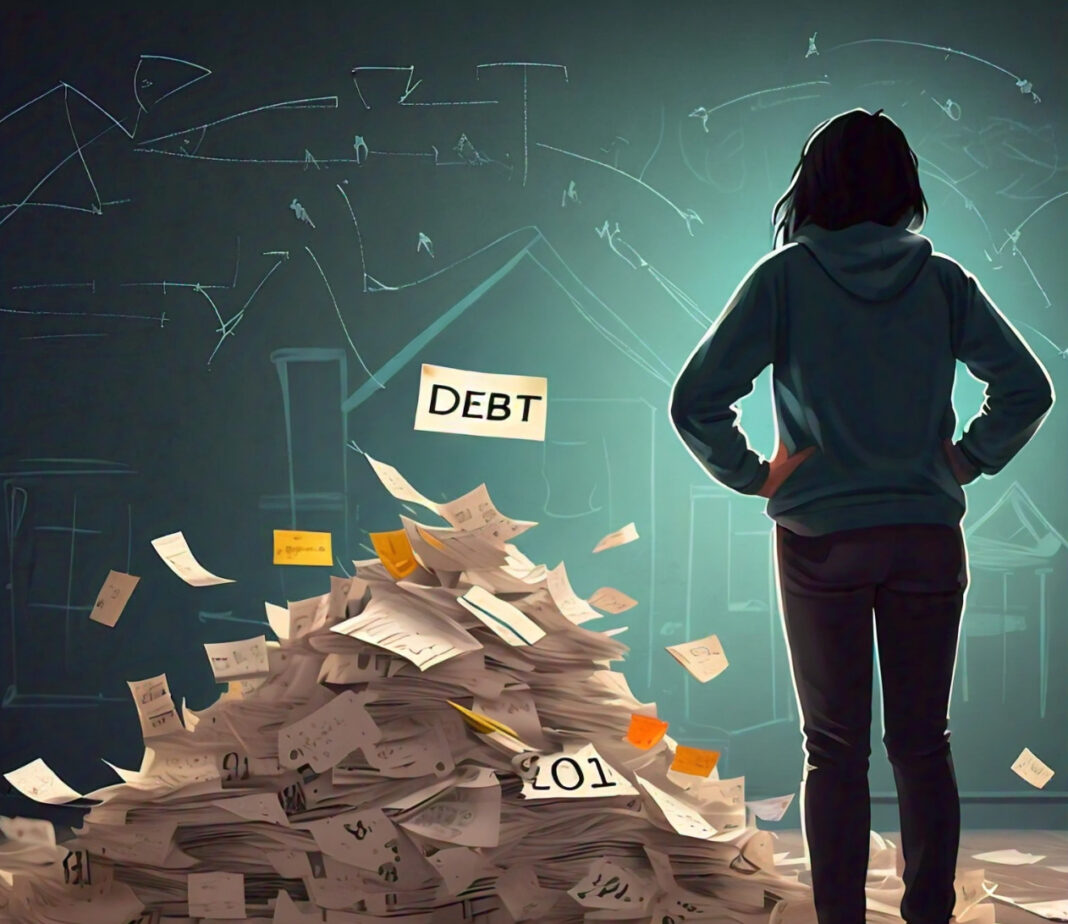Personal loan debt may feel like an iron load weighing down your finances and often making life stressful. Whatever the reason—home improvement, consolidation of credit card loans, or paying some unexpected bills—managing this debt is central to effectively tackling it through the various strategies and workable steps.

Gaining an Understanding of Your Personal Loan Debt
The first step to considering options to manage debt is to have a firm grasp on what the current lay of the land is.
Assess Your Debt
Start by gathering all information about your personal loan in the following:
Amount borrowed
Current Balance
Interest rate
Monthly payment amount
Loan term-how long you have to repay
Next, create a listing of those details for each personal loan you have. The overview will help you to conceptualize the depth of your debt and know where to start when trying to pay it off.
Know Your Interest Rates
That’s where interest rates kick in: they greatly influence how quickly your debt grows. The higher the interest rate, the more of your payment is going to go toward paying the interest rather than the principal. Knowing your rates will help you determine which debts to pay off first.
Review Your Loan Terms
First, start by reading through your loan contract. Pay particular attention to:
- Prepayment penalties
- Late payment fees
- Ability to change payment due dates
- Potential rate increases
With such knowledge, you can avoid all charges that are avoidable and take advantage of whatever flexibility your lender might offer.
Creating a Plan for Repayment
By now, you have an exact picture of the amount of debt owed. The next step will require you to devise a comprehensive plan to pay the debt off.
Budget Analysis
Analyse your monthly income and expenses, then decide on a realistic amount you can pay toward debt each month. Decide where you can further cut spending so that more money is available for loan payments.
Choose a Repayment Strategy
When multiple debts are present, two of the most popular methods people use in paying them include:
- Debt Avalanche: Focus your efforts on paying down the highest interest loan first, while making minimum payments on the others. This, over time, will save you the most money in interest.
- Debt Snowball: Pay the smallest first, regardless of interest rate. This offers quicker wins and is arguably more motivating in its results-the debts just disappear faster.
Choose the one that best fits your financial situation and personality.
Set Realistic Goals
Based on the analysis of a budget and strategy chosen, clearly state what realistic goals regarding debt repayment are expected. For example:
Pay one of your loans within a year
Increase your monthly payments by $100 in three months
Reduce the total debt by 25 per cent within this year
Setting specific goals will keep you focused and motivated through the process of debt repayment.
Strategies to Accelerate Debt Repayment
You have a plan, and now it’s time to accelerate the process of debt repayment.
Make Extra Payments
Wherever possible, make extra payments to be applied toward the principal of your loan. They can be small, but they pay dividends in bringing down your total interest paid and time of the loan.
Employ Windfalls Wisely
Put any unexpected money towards your balance, like tax refunds, bonuses, or gifts. This can make a huge difference and pay off a substantial amount of principal.
Consider Biweekly Payments
In situations where your lender permits, consider converting over to biweekly payments instead of monthly. This is 26 half-payments per year, or in other words, the equivalent of 13 monthly payments, and can result in paying off your loan more quickly.
Explore Refinancing Options
You may have taken out the loan at a time when your credit score was lower; refinancing will get you a better interest rate if your credit score has improved since then. You stand to benefit from lower monthly installments or pay off your debt faster.
Negotiate with Your Lender
Don’t be afraid to approach your lender. They may offer some options like:
Temporary reductions in payments
Adjustment of interest rates
Extending the loan term, thus reducing your monthly payments
Remember that most lenders in cases would rather work with the debtor than risk a default.
Strategies to Increase Your Income to Repay Debt
Sometimes, trimming expenses may just not be enough. Increasing your income advances that extra quantity of money that becomes necessary to accelerate the debt repayment process.
Side Hustles
Part-time jobs or freelancing in free time is another popular activity. The gig economy has opened various avenues, starting from driving for rideshare companies to online tutoring.
Sell Unwanted Items
Pick up stuff lying around your house that you do not need anymore. Online marketplaces and yard sales are good options for quick cash to gather up and put toward your debt.
Ask for a Raise
If you’ve been doing a good job at work, ask for a raise. First, understand your worth for getting that raise; do some research as to what your salary should be for your particular occupation, and be prepared with a case as to why you are deserving of the raise.
New Skills
Invest in learning new skills that can help you find higher-paying employment opportunities or be accepted for more lucrative side projects.
Prevent Future Debt by Managing Your Finances
As you pay back your debt, you also want to build habits that keep you from falling into a debt trap in the future.
Create an Emergency Fund
Build an emergency fund to pay for unexpected expenses. Shoot for three to six months of expenses. This will give you a cushion to prevent new debt surprises.
Live Below Your Means
Live modestly well within your means and spend less than your income. This builds a margin into your budget for savings and debt repayment.
Use Credit Wisely
If you use credit cards, pay off the balance every month to avoid paying interest charges. Spend only what you can afford to pay right away.
Track Your Spending
Track your spending with the budgeting apps and spreadsheets so that you know where the money goes. That will give you great insight and allow you to make conscious choices about where your money should go.
Automate Savings
Set up automatic transfers to your savings account with every payday. Paying yourself first in savings is not an option, but a necessity to build financial security.
Dealing with Debt Stress
Undoubtedly, living with debt can have powerful effects on one’s mental health. It is crucial to attend to the emotional part of paying off debt.
Practice Self-Care
As you exercise care over your finances, do not neglect attending to your physical and mental health. Regular exercise, sufficient sleep, and healthy eating can help stabilize stress levels.
Celebrate Small Wins
This doesn’t mean you shouldn’t appreciate every step forward, even if it seems insignificant. With every payment, you are one step closer to being debt-free.
Get Support
Discuss your journey with friends, family, or a financial counselor. Many of these friends and family may help you be accountable for your actions, and this can be encouragement enough.
Be Positive
Know that debt isn’t permanent-it will be gone eventually. Keep looking on the bright side and know things will start to get better on the road to financial freedom.
When to Seek Professional Help
Sometimes, debt is too much to tackle alone. Know when to seek professional advice.
Credit Counseling
Seek credit counseling from a non-profit agency. These agencies can provide individualized advice and may be in a position to work with creditors on your behalf.
Debt Consolidation
If you have a great deal of high-interest debt, a debt consolidation loan might make your payments simpler and may save you money on interest overall.
Debt Settlement
As a last resort, debt settlement companies try to negotiate with the creditors on behalf of their customers to reduce the total amount owed. Be extremely cautious; this has a huge impact on your credit score.
Bankruptcy
It might be a choice as a last option: bankruptcy. You should consult a bankruptcy attorney on whether that would be fitting for your case and what long-term repercussions there could be afterward.
Conclusion
It encompasses a great deal of patience, discipline, and strategy when dealing with personal loan debt. Knowing your debt, having a laid-out plan for repayment, and instilling healthy habits in your finances are the three building blocks that will guide you through successfully out of debt and into financial freedom.
Remember, any step taken to reduce your debt is progress. Stick to your goals, be ready to change your strategy if something is not working, and do not be afraid to seek help when it all gets too much. If you stay steadfast and find an approach that works, then you are sure of conquering your personal loan debt and laying the foundation for a more stable financial future.
Sometimes the process of being debt-free would be totally smooth, and other times it might not be. But all that will be worth getting peace of mind and stability in financial matters. Take control over your personal loan debts today and look forward to a future with greater financial flexibility and security.






